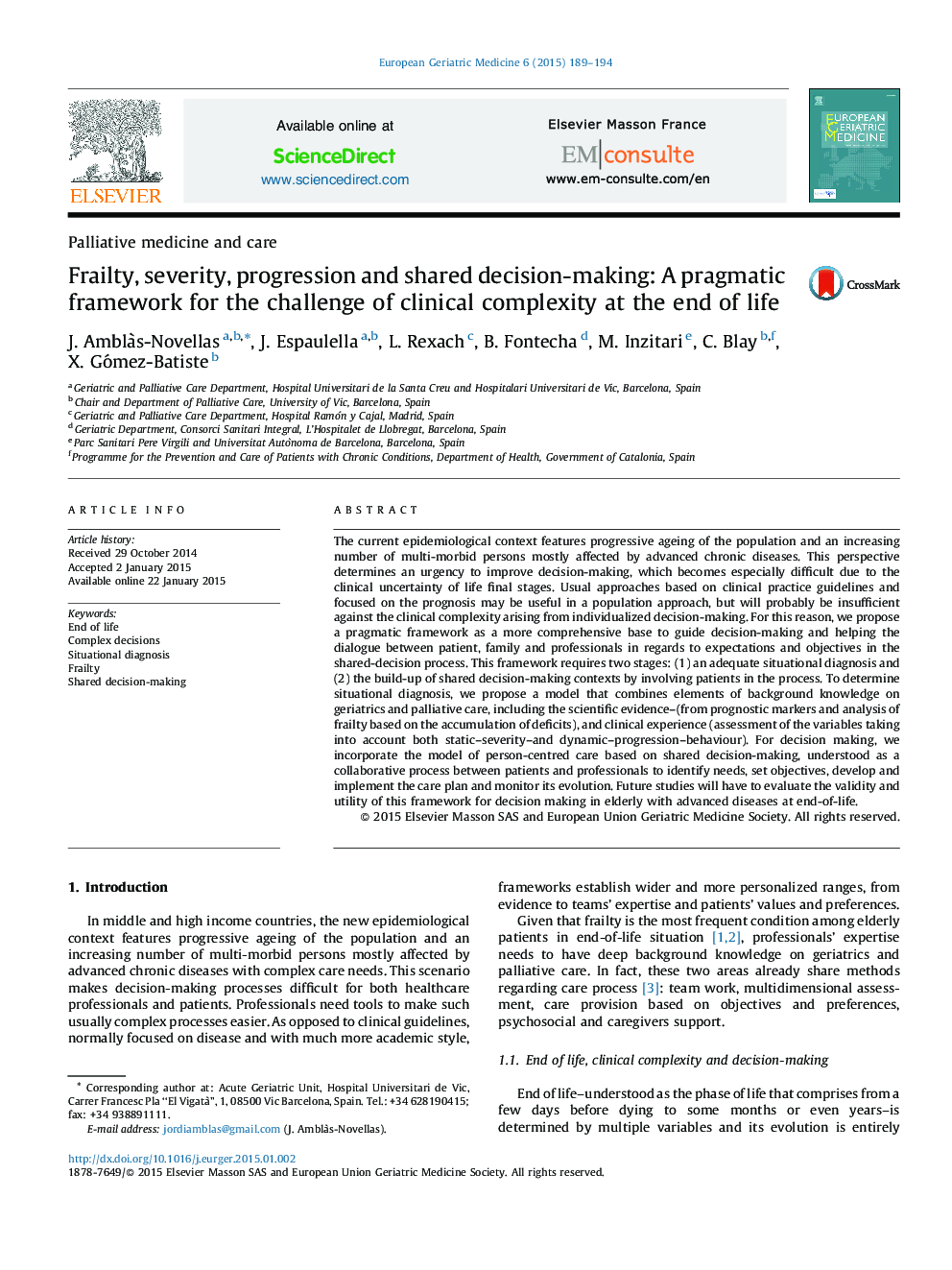| Article ID | Journal | Published Year | Pages | File Type |
|---|---|---|---|---|
| 3324218 | European Geriatric Medicine | 2015 | 6 Pages |
The current epidemiological context features progressive ageing of the population and an increasing number of multi-morbid persons mostly affected by advanced chronic diseases. This perspective determines an urgency to improve decision-making, which becomes especially difficult due to the clinical uncertainty of life final stages. Usual approaches based on clinical practice guidelines and focused on the prognosis may be useful in a population approach, but will probably be insufficient against the clinical complexity arising from individualized decision-making. For this reason, we propose a pragmatic framework as a more comprehensive base to guide decision-making and helping the dialogue between patient, family and professionals in regards to expectations and objectives in the shared-decision process. This framework requires two stages: (1) an adequate situational diagnosis and (2) the build-up of shared decision-making contexts by involving patients in the process. To determine situational diagnosis, we propose a model that combines elements of background knowledge on geriatrics and palliative care, including the scientific evidence–(from prognostic markers and analysis of frailty based on the accumulation of deficits), and clinical experience (assessment of the variables taking into account both static–severity–and dynamic–progression–behaviour). For decision making, we incorporate the model of person-centred care based on shared decision-making, understood as a collaborative process between patients and professionals to identify needs, set objectives, develop and implement the care plan and monitor its evolution. Future studies will have to evaluate the validity and utility of this framework for decision making in elderly with advanced diseases at end-of-life.
